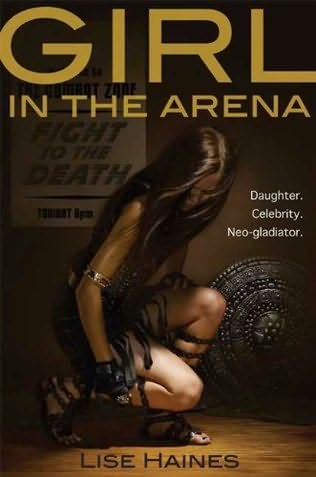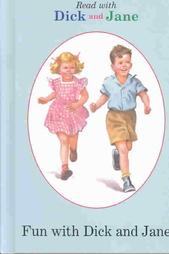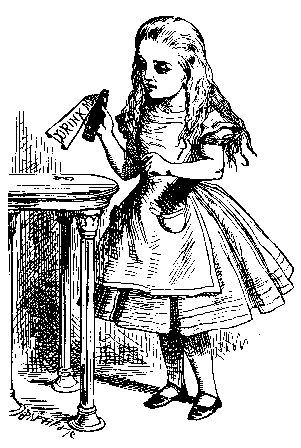Sometimes I pick up a book and feel like I'm reading the same story time and time again. Sure, authors can't be original all the time, but I'm starting to wonder if originality even exists.
1. Mimic


This is the cheapest form of copycatting. You see that somebody's gotten rich off a certain series, leaving fans frantically searching for anything that remotely resembles it. So you write something kind of sort of like that, but nobody likes it anywhere near as much as the original series.
Examples: This happened with Harry Potter and Twilight. Now it's happening with Hunger Games. Suzanne Collins is trickier to copy. You can put wizards or vampires in any story. But you can't just put twenty four teenagers in an arena to fight the death. Dystopias require a lot more world building. Most of the Hunger Games 'knock-offs' have little in common except the genre.
A bad (less original) dystopia will have only an evil dictator, a conspiracy where the government harms its own citizens, shortages, environmental changes, slightly changed technology (often hovercrafts), and lots of capital letters. I've seen Society, Authorities, Officials, the Reestablishment, and The One or the Ones. Usually protagonist thinks their world is perfect until a lover/friend/mentor, most often a lover, teaches them to think differently.
A good dystopia willl create a remarkably different world and raise questions about human nature.
2. Glorified fanfic


Fan fiction is great fun, but not usually high quality. And it shouldn't be published. Internet is fine, it gives the fandom something else to drool over. But it shouldn't be wrapped in a book jacket and placed on shelves of Barnes and Noble. It's even worse than mimicry because they're copying characters and plots, not just concepts.
Examples: Everybody loves Pride and Prejudice. Especially the authors of Prada and Prejudice, Prom and Prejudice, and Pride and Popularity. I actually liked the first one, but I could tell Callie was supposed to be Elizabeth and Alex was supposed to be Mr. Darcy.
I think what happens is somebody will read a book they really love and feel a strong desire to write one just as good. But what made it good is the originality-such a rare thing-so a copy will never never achieve the same quality.
3. Parody


So you hate a book and want to write the opposite. Many of history's great works were written this way.
Examples:
Jane Austen wasn't very impressed by gothic romance, which dominated women's fiction at the time. Northanger Abbey stars a clueless heroine who only thinks there are skeletons in the closet.
Cervantes hated knights in shining armor galloping across the countryside on noble steeds to save damsels from giants. So he had an insane old man in rusty armor riding ugly horses, wooing kitchen maids, and attacking windmills.
Dr. Suess hated the Dick and Jane books. He thought it was no wonder kids wouldn't want to read if all they could do was learn about Dick and Jane watching Spot run. His editor challenged him to write something children wouldn't want to put down using the same simple words.
After scanning a vocabulary list, Suess found two words he liked, 'Cat' and 'Hat', and worked from there.
4. Inspiration

Everybody has to get their ideas from somewhere. Lewis Caroll got his while rowing down a river with three little girls, one of them named Alice Liddell. That trip inspired Wonderland. Wonderland inspired everything from books to songs to TV shows to plays. I'm not even going to count the movie adaptations and fan sequels.
1900: L. Frank Baum writes The Wonderful Wizard of Oz, where we have Dorothy instead of Alice, a tornado instead of a rabbit hole, and Oz instead of Wonderland.
1967: The Jefferson Airplane Song 'White Rabbit' consists of references to Alice in Wonderland and makes it sound like the book's about drugs. This is probably why people believe Caroll was high while he wrote it. You can't write a book while you're high. Songs, yes, but not a book.
One pill makes you larger
And one pill makes you small
And the ones that mother gives you
Don't do anything at all
Go ask Alice, when she's ten feet tall
One pill makes you larger
And one pill makes you small
And the ones that mother gives you
Don't do anything at all
Go ask Alice, when she's ten feet tall
1971: The diary format novel Go Ask Alice takes its title from the lyrics of White Rabbit.
1995: Gregory Maguire twists the story of Oz and writes Wicked: The Life and Times of the Wicked Witch of the West.
2003: A Broadway musical is based of Maguire's book.
Also 2003: New York City resident Suzanne Collins ponders on how you're so much more likely to fall down a manhole than a rabbit hole and writes 'Gregor the Overlander'.
2012: In the ABC drama Once Upon A Time, the Mad Hatter is named Jefferson after the band.
All this wouldn't have been if it weren't for Alice.
So I have to wonder, is anything original, or are people retelling the same stories over and over again?
No comments:
Post a Comment